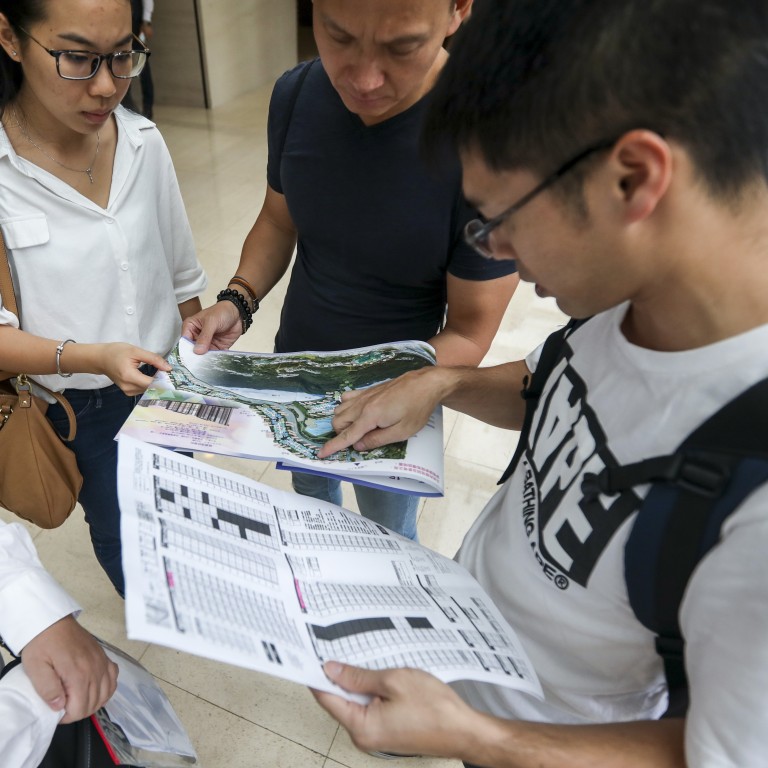
Hong Kong’s homebuyers greet developers’ attempt to sell leftover residential property with their collective cold shoulder
- The biggest sales weekend of residential property in almost five months was met with a collective shrug
- A total of 152 flats, or 35 per cent of the 435 units on offer by developers, found buyers
Hong Kong’s biggest sales weekend for residential property in almost five months was met with a collective shrug, as homebuyers mostly ignored the 622 unsold homes left over from previous launches to wait for new projects that are due for release in the coming months.
A total of 152 flats, or 35 per cent of the 435 units offered by five developers, found buyers at 6pm, sales agents said. Another 187 homes were being offered on tender, whose results will only be revealed on Sunday.
“Market sentiment is different [from a year ago], where not selling is the new normal, and the ability to sell is a better-than-expected [outcome],” said CGS-CIMB Securities’ head of Hong Kong and China research Raymond Cheng. The secret behind “previous sales that were successful came down to more reasonable or attractive pricing. If prices are set too aggressively or are higher compared to initial launches, buyers will hesitate,” he said.

Homebuyers had become more discerning, turning their shoulders on property that were not offered during earlier launches, particularly in areas that had been affected by anti-government protest rallies, agents said.
Henderson Land Development, owned by the city’s second-richest man, did not find any buyer for its Novum Point project in North Point, or the Eden Manor in Sheung Shui.
Overseas developers have stepped up their marketing campaign to attract Hong Kong’s property buyers, with at least seven real estate and emigration seminars underway on Saturday to promote homes in Singapore, Malaysia, the UK, Canada and Australia.
That is weighing on a city that slipped into its first recession in more than a decade, after third-quarter growth declined by a larger-than-expected 3.2 per cent compared with last year. If Hong Kong’s protest violence continues for a year, the city’s 2020 growth could shrink by 5.8 per cent, which would make it the worst contraction since the city’s return to Chinese sovereignty, according to a forecast by the Dutch bank ING.
Bank of America, JPMorgan Chase & Co, Goldman Sachs and Morgan Stanley all slashed the city’s GDP growth to negative territory, to as much as -2.1 per cent, and warned of long-term recession as tourism and retail are hit hard.

